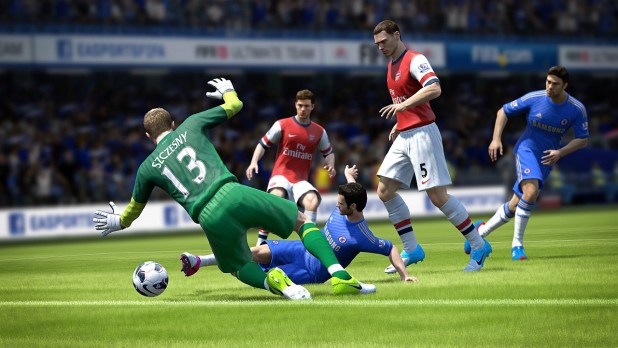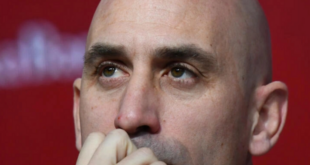Allan Wall
VDARE
June 7, 2015
Much of our immigration law is not enforced by the Obama Administration’s Department of Justice (DOJ). But that’s not incompetence or an oversight. It’s intentional, and it comes from the top.
Not only does the DOJ not enforce laws, it oversees Obama’s unilateral amnesty.
So what is the DOJ doing with its resources?
The department’s latest high-profile operation is going after FIFA, which is the international governing body of the sport of soccer. (FIFA is an acronym based on the French Fédération Internationale de Football Association).
Excuse me, but why is the U.S. DOJ worried about FIFA? Shouldn’t the DOJ be enforcing our own immigration law?
Knowing the Obama administration, to ask the question is to answer it.
The New York Times has an article about it entitled FIFA Case Could Strengthen Justice Dept’s Global Power (Peter J. Henning, New York Times, June 1, 2015).
Really, I don’t think the Justice Department needs global power. It needs to do its job bringing justice in the U.S., beginning right at our own border.
Here’s what the NYT says.
Teddy Roosevelt was fond of the West African proverb to “speak softly and carry a big stick; you will go far.” The Justice Department is wielding one of its biggest sticks — the Racketeer Influenced and Corrupt Organizations Act, better known as RICO — to go after bribery and kickbacks that have been rife in international soccer for decades. RICO has been a popular tool for prosecutors to attack the mob, corporate fraud and corrupt politicians in the United States. Now, the latest Justice Department case will test whether the law can be applied to misconduct by foreigners that largely takes place outside the United States.
The Justice Department certainly has a challenge on its hands with the latest case. It filed charges — including money laundering and wire fraud —against 14 defendants, most of whom are not United States citizens, over allegations of accepting bribes related to various soccer competitions sponsored by FIFA and its regional confederations. To prove a RICO case, prosecutors must show that those alleged crimes were part of a broader “pattern of racketeering activity” rather than just separate acts committed by different defendants.
The Justice Department’s indictment outlines payments that date back to 1991, a time frame that is usually far outside the statute of limitations for corruption offenses (usually five years in such cases). But RICO can be a magic bullet to avoid that impediment by allowing federal prosecutors to file charges for operating an “enterprise” through the pattern of illegal acts stretching back decades, as long as one of them occurred in the last 10 years. That means allegations of bribes paid in the 1990s — such aspayments made by Nike in the 1990s to sponsor the Brazilian World Cup team that were later said to be used to pay bribes and kickbacks — have been included in the case.
Much of the allegations outlined in the indictment, which lists 47 counts and runs 161 pages, took place outside the United States.
So why is this under our jurisdiction?
Prosecutors say bribery occurred for a wide range of events. They include FIFA’s vote in 2004 to select which country would host the 2010 World Cup and the award of broadcast rights to competitions like the Copa do Brasil, which involves that country’s top clubs. That instance is the basis for charging violations of the wire fraud statute, in particular the right of honest services owed to FIFA and other soccer confederations where the defendants were officers.
Why should our law enforcement offiicals care about this?
According to the indictment, a major aspect of the corruption involved transferring funds derived from the illicit payments through banks in the United States. That is the basis for the money laundering counts.
Ah, so that’s their angle.
Charges that involve money laundering or wire fraud have to be based on discrete acts. Therefore, in most cases, only those directly involved can be charged. The RICO count gives the Justice Department the firepower to bring all the defendants together in a single case by asserting that there was a pattern of rampant corruption tying the defendants together into a larger scheme. The case would not be nearly as compelling if only one person here and one person there was indicted.
The added ammunition of the RICO charge, in essence, accuses FIFA and the regional confederation of being turned into a criminal enterprise by the defendants. And it made for great press, letting the head of the criminal division at the Internal Revenue Service, Richard Weber, to proclaim that this amounted to the “World Cup of Fraud.”
You get the idea. If you’re interested, go to the link. But just remember, the same DOJ that won’t enforce immigration law is going after the international board that governs soccer.
Have any Republicans in Congress spoken out about this?
 Daily Stormer The Most Censored Publication in History
Daily Stormer The Most Censored Publication in History



